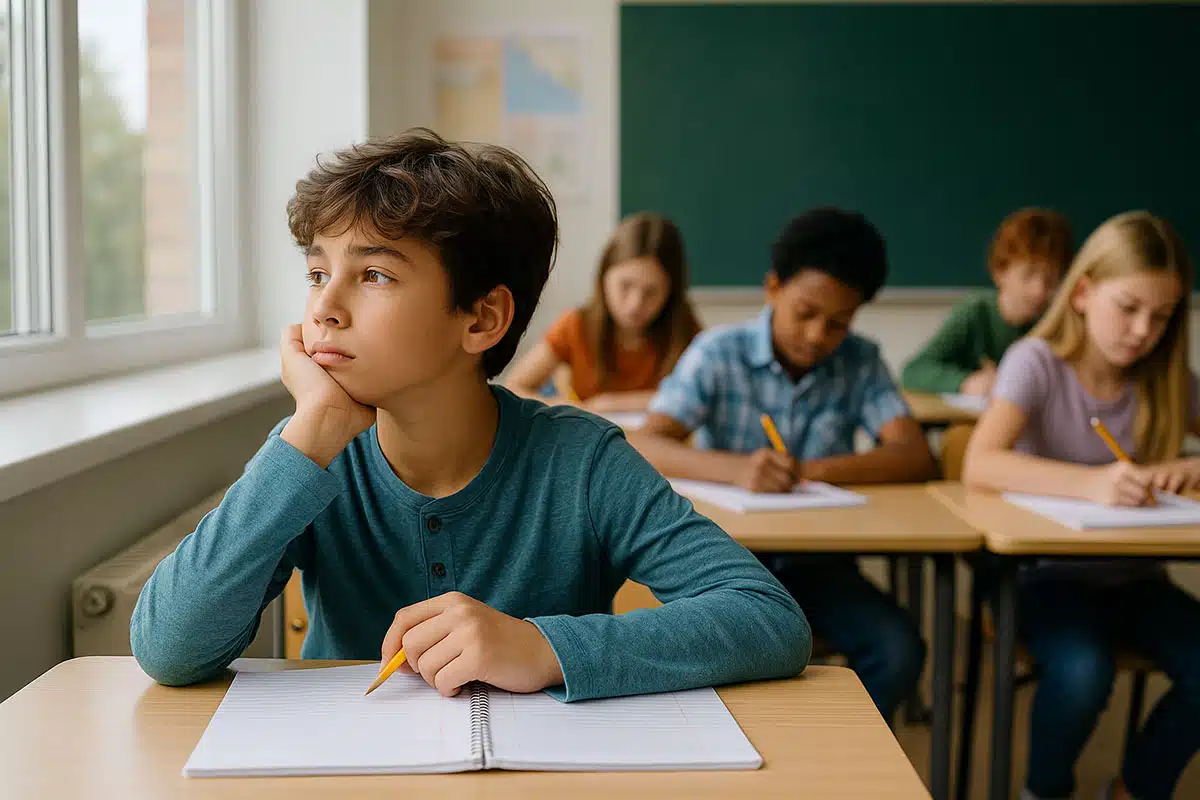
The Hidden Impact of Sports Injuries on Youth Mental Health
Youth sports injuries can affect more than the body. They also impact mental health. Here is how to support full recovery.

For children living with ADHD, each day can feel like a battle between intention and distraction. To the outside world, their behavior might look like disorganization, impulsivity or carelessness. But on the inside, there is often a deep desire to do well, fit in and stay on track.
So what does ADHD really feel like?
Let’s walk through a typical school day through the eyes of an 11-year-old named Jake, a smart, funny, kind-hearted kid with attention-deficit/hyperactivity disorder (ADHD). His experience may help you better understand the challenges your child might be facing.
Jake’s alarm goes off, and so does his brain. Before his feet even hit the floor, his mind has already bounced between a dream he had, what is for breakfast, a YouTube video he saw last night and whether he remembered to pack his gym sneakers. The morning routine (brushing teeth, putting on socks, grabbing his backpack) takes extra reminders. Not because he is lazy or unmotivated, but because even basic tasks feel like puzzles when focus does not come easy.
And when someone says “hurry up,” the pressure only makes it harder to move.
By the time Jake gets to class, he is trying to stay with the lesson. But the teacher’s words start to blend into background noise as his attention drifts. First to a bird outside, then to a pencil tapping, then to wondering what is for lunch.
When the teacher calls on him, he panics. He heard the start of the question, but the middle disappeared in a blur. Now he is left guessing, hoping his classmates do not laugh. They do not understand that his mind often skips like a scratched CD.
Lunch should be a break, but for Jake, it is overwhelming. The noise, the lights, the chaotic energy, it is a sensory overload. He wants to be part of the group, but sometimes blurts out jokes at the wrong time or interrupts without meaning to. Other kids sometimes roll their eyes. He does not mean to be “too much.” His brain just does not have the same filter.
By afternoon, Jake is trying hard to hold it together. He is already used up so much mental energy just trying to focus. He wants to finish his assignment, but one confusing instruction derails him. Frustration builds fast. He taps his foot. His leg bounces. His body wants to move even if he knows he is supposed to sit still.
Then the teacher says “stay on task,” and Jake feels embarrassed. He was trying. Really trying.
The school day ends, and Jake finally feels free. But as he unwinds, a wave of guilt creeps in. He forgot to turn in his homework, even though he did it. He got scolded for talking out of turn, again. He wonders, “Why is it so easy for everyone else?”
He does not want to be the “problem kid.” He wants someone to see how hard he is working, even if the results do not always show it.
Jake’s story is not every child’s story, but it reflects the daily inner world of many children with ADHD. Their struggles are often invisible. Their intentions are good. Their minds are wired differently, not wrongly.
At Pediatric Consultations, we believe that with the right support, tools and compassion, kids like Jake do not just survive, they thrive. ADHD is not about a lack of discipline. It is about a different way of processing the world, and we are here to help families navigate it together.
If you see your child in Jake’s story, let’s talk. Whether you are looking for a diagnosis, treatment options or just someone who understands, our team at Pediatric Consultations is here to guide you every step of the way. Let’s turn the chaos into clarity and support your child in building a confident, empowered future.

Youth sports injuries can affect more than the body. They also impact mental health. Here is how to support full recovery.

Learn how screen time affects kids’ mental health and discover realistic, tech-positive habits families can use in 2025.

Due to a sudden serious and ongoing medical issue, Dr. Peter Halas has closed his Pediatric Consultations practice.
Dr. Halas is deeply grateful for the trust, kindness and connection shared with patients and families throughout the years. It has been an honor to care for your children and to be part of your lives.
For any ongoing medical needs or referrals, please contact your primary care provider. Dr. Halas wishes each of you continued health and happiness.